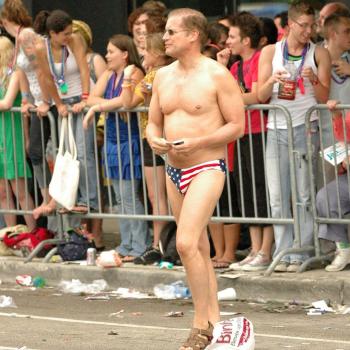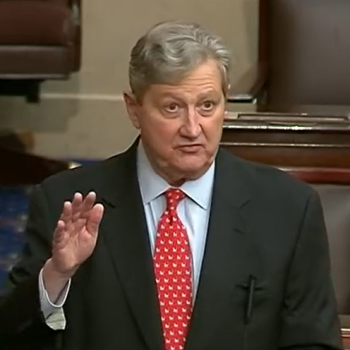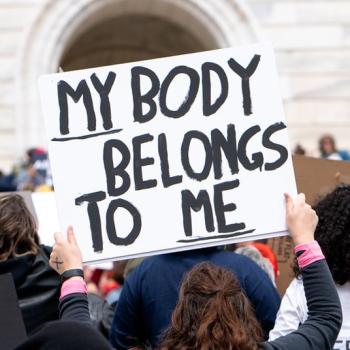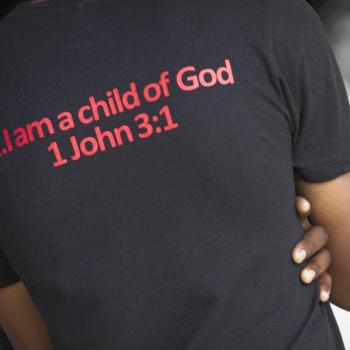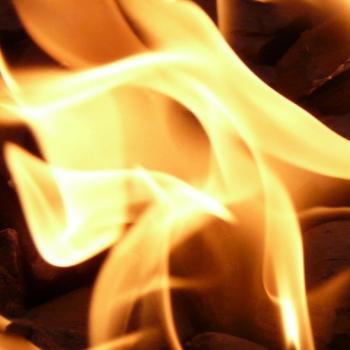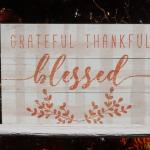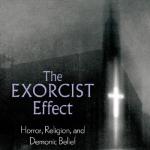What Is It? Who Celebrates It? Why Should I Care?
I hesitated about writing an article on Kwanzaa. I know very little about the holiday. It has nothing to do with me. Why should I care?
Granted, I’m American, but my ancestry is primarily Scottish and English. My eyes are green. My skin is very light, and my hair is blonde with gray streaks that become decidedly more prominent the longer I neglect the Clairol bottle.
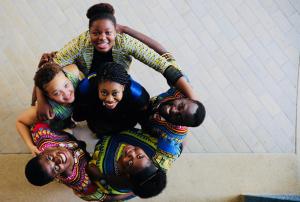
In other words, you will never mistake me for an African American.
With my solidly white appearance and ancestry, why should I care about Kwanzaa?
Then, I realized that all of us need to care.
What Is Kwanzaa?
“Kwanzaa” comes from the Swahili word “kwanza,” which translates to “first” or “firstly” and refers to the first fruits of the harvest. It’s a secular festival that many African Americans celebrate from December 26 to January 1. The focus is black cultural heritage and tradition.
And although it falls near Christmas, New Year’s and Hanukkah, it has no connection to these other November or December holidays.
Kwanzaa & Watts
Kwanzaa came into being in 1966, when a black man named Maulana Karenga decided to help “unite and empower” blacks following the Watts riots or rebellion of 1965. (Some people prefer the word “rebellion” on the grounds that it more accurately depicts what happened. It probably does.)
I abhor violence, but the rage among blacks in Los Angeles was understandable. It had been building in LA and in black communities across the nation for generations. I wouldn’t be exaggerating if I traced it all the way back to 1619, when the first enslaved black people arrived in Virginia.
Matters came to a head in Los Angeles one August day in 1965 when a white highway patrolman stopped a black man on suspicion of drunken driving.
Questions remain about whether the man resisted arrest or the officer used excessive force. In a time before cell phones, no bystanders recorded the incident. Whatever the case, the “simple” traffic stop exploded into violence that lasted from Aug. 11-Aug. 16.
By the time the riots/rebellion ended, a 46-mile area of Los Angeles looked like a war zone.
You can learn more by going to the African American Intellectual History Society’s website. Read more here.
Kwanzaa Is Born
Following the riot or rebellion in Watts, Maulana Karenga became determined “to fill the gaps where the U.S. had failed African Americans,” according to a recent Los Angeles Times editorial. He came up with Kwanzaa.
“Set against the backdrop of the civil rights movement, the seven-day celebration urged the African American community to define and uplift itself,” the editorial says. Learn more here.
What Are the 7 Principles of Kwanzaa?
Participants in the celebration light a “kinara,” which holds seven candles. Lighting candles on the kinara may remind you of the menorah and its candles, but one tradition is secular and the other, religious.
One candle in the kinara is black, three are red and three are green. These candles represent “the people, the struggle and the future,” CNN explains in a piece that aired several years ago.
“They also represent the seven principles: unity (umoja), self-determination (kujichagulia), collective responsibility (ujima), cooperative economics (ujamaa), purpose (nia), creativity (kuumba) and faith (imani).” The addition of boldface is my choice.) Read more here.
Although some beliefs are contrary to Christian teachings, some people celebrate Christmas as well as Kwanzaa.
Kwanzaa brings together individuals and communities to enjoy music, dance, poetry and narratives. People celebrate the bonds that hold them together, honor their ancestors and celebrate their culture. A feast day called Karamu on Dec. 31 celebrates welcome, remembrance, and farewell. People also exchange homemade gifts that represent their heritage in some way.
“Kwanzaa brings a cultural message which speaks to the best of what it means to be African and human in the fullest sense,” the Kwanzaa website says. Learn more here.
And while Kwanzaa was created for African Americans, other participants are welcome.
Why Should I Care about Kwanzaa?
Back to my original question: Why should non-blacks care about Kwanzaa?
My reasoning goes back to the racial divide that is tearing America apart.
Racism and racial violence have plagued the U.S. for centuries. Over the last decade or more, the news has been filled with stories of racial violence:
- George Floyd, a 46-year-old black man, was murdered by a white police officer in 2020. The officer pinned Floyd to the ground by the neck for nine minutes, causing Floyd’s death. The alleged crime: passing a counterfeit $20 bill. People around the world protested the killing, and the officer was convicted of murder. Read a New York Times’ story here.
- Michael Brown, an 18-year-old black man, was killed in 2014 during a struggle with a policeman. The shooting took place in Ferguson, MO, and lead to major racial unrest. See what else the Atlanta Journal-Constitution says here.
- Twelve-year-old Tamir Rice was shot and killed by police in Cleveland, OH, in 2014. He apparently had pointed an object, later identified as a toy gun, at passersby. Learn more from CNN here.
- Botham Shem Jean, a 26-year-old black accountant from Dallas, was murdered in 2018 when he opened his front door to an off-duty police officer who lived in his apartment building. The officer said she mistakenly thought she was in her own apartment and Jean was an intruder. She was convicted to murder. Read the New York Times story here.
Additionally:
- Nine African Americans were shot by a white supremacist during Bible study at a Charleston, S.C., church in 2015. Read the Washington Post story here.
- Ten people, who were mostly black, died when an 18-year-old gunman opened fire in a Buffalo, N.Y., grocery store earlier this year. Three other people were injured. White supremacist beliefs apparently influenced the shooter. See the New York Times story here.
- A gunman with ties to white supremacists attempted to kill blacks in a Georgia convenience store in 2021. He pleaded guilty to committing a federal hate crime earlier this month (December 2022). Learn more about the story here.
I could go on and on, but I won’t.
Windows of Opportunity
I’m no expert, but I believe that ignorance and fear cause a great deal of the violence that we encounter in our world. Many of us grow up in communities where we generally look and think like our neighbors. We have little contact with other cultures and feel threatened when we encounter them.
God — being God — has a much broader view of us and our world. He sees past differences that are immensely important to us, looks into our hearts and souls, and finds value.
We cannot see ourselves the way God sees us, but we can take advantage of traditions like Kwanzaa, which provide us with windows to other cultures…. if only we open them.




